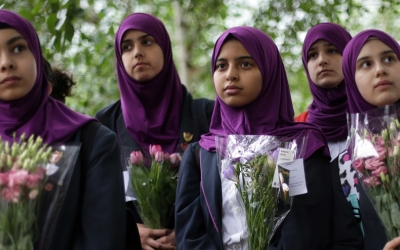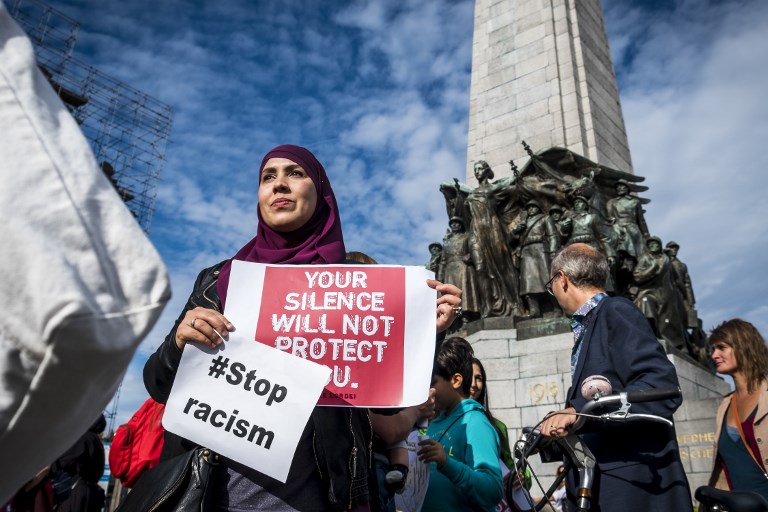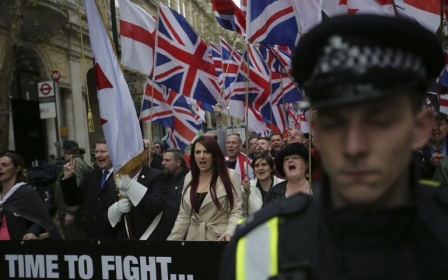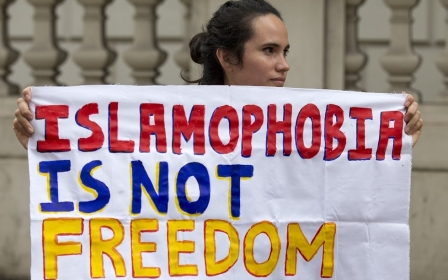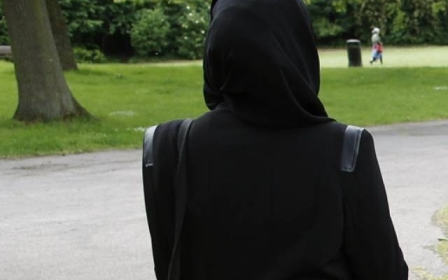Prevent's work on far right extremism does not make it worth saving
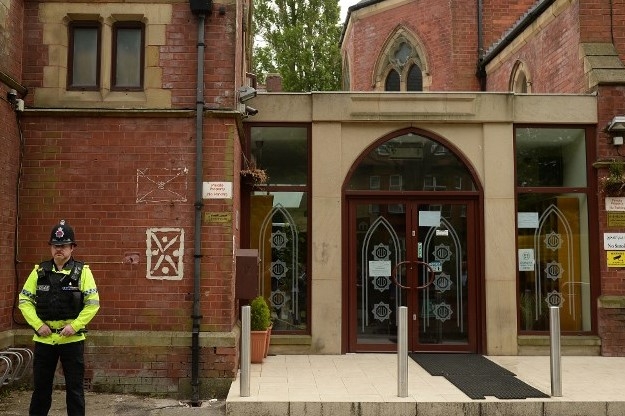
For the last two years, I have increasingly seen Prevent practitioners and those who sympathise with Prevent argue that increased far-right referrals prove it is a fair and non-discriminatory policy.
With an “independent” review of the policy coming up, it’s worth disposing of this myth once and for all.
If we were to extend the boundaries of how Prevent treats Muslims to how it treats far-right ideology, we would begin to see referrals in unimaginable numbers
A recent article by Prevent practitioner Sean Arbuthnot for the Centre for Analysis of the Radical Right contains the typical arguments made to justify this position. Arbuthnot believes that the standout headline from these recent statistics is the 36 percent increase in far-right referrals.
But this increase in no way comes close to the frequency with which Muslim families, and particularly Muslim children, are reported.
A startling figure
Stay informed with MEE's newsletters
Sign up to get the latest alerts, insights and analysis, starting with Turkey Unpacked
To illustrate this, it’s worth looking more closely at the maths. Out of the 394 Channel referrals that were made, 179 were for “Islamist extremism”, while 174 were for right-wing extremism.
This seems somewhat equal, until we understand the data in relation to the respective communities from which it comes: 179 Muslims from a population of 3,000,000 Muslims in the UK equates to a referral rate of around one in 17,000, while 174 far-right individuals from a population of 50,000,000 white people in the UK equates to a referral rate of around one in 287,000.
This means that a Muslim child is 17 times more likely to be referred for “deradicalisation” than a white British child of no apparent faith group. This is a startling figure by any stretch of our understanding of discrimination.
Despite 80 percent of current terrorism investigations being directed towards "Islamist extremism", Arbuthnot believes that the number of far-right referrals being made indicates a growing problem within British society. He fortifies this with the claim that four out of 17 foiled plots since 2017 related to far-right groups or individuals.
Rather than concluding that Muslim referrals are much higher than they should be, he instead justifies what is a toxic policy, by the existence of far-right referrals
By using this argument, he - and the Prevent practitioners who continually echo him - miss the racialised aspects of Prevent. Rather than concluding that Muslim referrals are much higher than they should be, he instead justifies what is a toxic policy, by the existence of far-right referrals. This is an out-and-out red herring, meant to send Muslims and others who are sitting on the fence completely off track.
Underlying Islamophobia
Even worse, the disproportionate numbers of Muslim referrals are not even up for debate. If anything, he believes Muslims might be being under-reported due to the fear of accusations over racism. Such assertions belie a disturbing underlying Islamophobia, resulting in a climate of suspicion not only towards Muslims, but towards those in society who might hesitate to report Muslims for what might well be valid reasons.
This is counterproductive, perhaps even divisive, and does not point us towards solutions.
Muslims are more likely to be referred over "extremism" due to the pathologising of Muslim beliefs and behaviours, which is the undercurrent of Prevent. This view finds its way into mainstream public and political discourse with little intellectual interrogation.
This is done through the use of language and terminology in relation to Muslims and Islam, which criminalises discussions, ideas and traditions that have a dynamic but integral role within our beliefs. Even in his own script, Arbuthnot uses the term "Islamist extremism", effectively lumping ideas and discussions within Islam into a criminal frame.
We find a description of the term in the government’s Task Force on Tackling Radicalisation and Extremism report, which notes: “[Islamist extremism] is an ideology which is based on a distorted interpretation of Islam, which betrays Islam’s peaceful principles, and draws on the teachings of the likes of Sayyid Qutb. Islamist extremists deem Western intervention in Muslim-majority countries as a ‘war on Islam’, creating a narrative of ‘them’ and ‘us’. They seek to impose a global Islamic state governed by their interpretation of Shari’ah as state law, rejecting liberal values such as democracy, the rule of law and equality. Their ideology also includes the uncompromising belief that people cannot be Muslim and British, and insists that those who do not agree with them are not true Muslims.”
Criminalising ideas
What we see here is an attempt to widen the signs that public sector workers must spot in their relations with Muslims - not simply a Muslim individual who has expressed an interest in violent acts, but anyone who is exploring or discussing certain ideas.
Criminality is extended to include, in a vague and amorphous way, the discussion of, interest in, or even exploration of concepts rooted in a 1,400-year jurisprudential tradition which have had a dynamic place within Islamicate communities and are highly dependent on context and scholarly consensus for their implementation.
Muslims are constantly involved in an internal discussion on the boundaries of these ideas, yet this definition is relied upon to pathologise Muslim behaviour and beliefs. It is directed, importantly, at people who have no understanding of these ideas, let alone their roots, provisions and relationship to Islamic practice.
However, the signs of far-right racism are much easier to detect. This is because Prevent limits public-sector understanding of far-right issues to overt racism and violence. It does not, by Arbuthnot’s own admission, extend into the realm of beliefs and discussions, or even into non-violent engagement with historical figures and arguments – as he writes:
"It is also fair to say that in my experience, a radical right referral to Prevent is generally more likely to be adopted by a Channel panel for support and intervention. This could be for a variety of reasons.
"For example, some people who refer to Prevent may be more adept at spotting the warning signs of radical right extremism than those of other ideologies. Indeed, this can be a natural extension of recognising and dealing with racism or hate incidents."
Lack of accountability
If we were to extend the boundaries of how Prevent treats Muslims to how it treats far-right ideology, we would begin to see referrals in unimaginable numbers.
Those who read The Sun or The Daily Mail’s invective against people of colour and immigrants would be flagged as a “cause for concern” for reading “extremist” material. Those who adopt the worldview of Melanie Phillips, Niall Ferguson, Michael Gove or Rod Liddle would similarly be highlighted as being “at risk”.
Rightly, we give the vast majority of those in British society the space to engage in ideas, even problematic ones, because we believe that sometimes people must go through difficult processes in order to find their place in the world.
In reality, however, accountability on far-right ideas rarely takes place. This means that damaging far-right views have gone mainstream, so those who tout them enjoy a privilege and protection that is inherently unjust, but that gives others courage to follow suit.
The very existence of Prevent exacerbates and justifies this trend, even though its practitioners attempt to skew the statistics to hide it.
Layers of spin
It’s also worth mentioning what cases taken up by Cage consistently show, and what even the former home secretary Amber Rudd admitted two years ago: Prevent is part of a larger judicial and security atmosphere, and a vital tool in intelligence-gathering.
Prevent is not about “safeguarding”. In fact, the co-opting of this term by the counter-extremism sector not only corrupts the very meaning of the term, and thereby does a huge disservice to the sector itself, but it also, as Charlotte Heath-Kelly writes, “enables the rollout of surveillance under the cover of benign protection”.
This affirms, yet again, that despite the many layers of spin that attempt to associate Prevent with nice-sounding intentions, our evidence base shows clearly that it is about securitising Muslim communities and criminalising individuals, and even children, without due process.
Pulling the “far-right” card is simply an attempt to scare Muslims into getting on board, so that they can become willing and blind accomplices in their own community’s surveillance and criminalisation. This sets an extremely problematic foundation for the control of wider society.
Prevent is a divisive policy that capitalises on existing discriminatory outlooks and actually furthers them, while fulfilling an intelligence-gathering function. For this reason, it is toxic to the core, and nothing less than a complete abolition of the policy can form a starting point from which we can begin to find solutions.
The views expressed in this article belong to the author and do not necessarily reflect the editorial policy of Middle East Eye.
Middle East Eye delivers independent and unrivalled coverage and analysis of the Middle East, North Africa and beyond. To learn more about republishing this content and the associated fees, please fill out this form. More about MEE can be found here.




